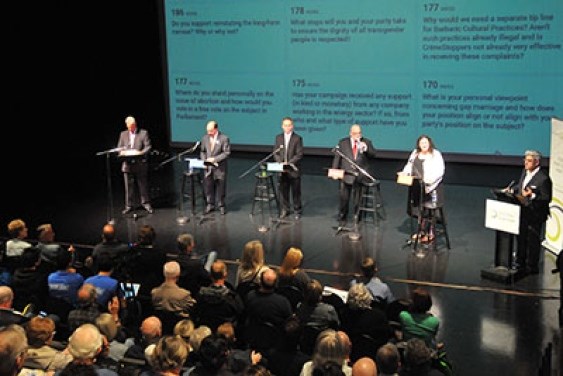It's an article of faith in the Canadian democratic system that people run for office to serve others — not for pay.
So it comes as a bit of a surprise to learn that Coquitlam-Port Coquitlam Conservative candidate Douglas Horne and his wife were each paid a stipend for their work in last year's federal election campaign.
The rules suggest the couple was not wrong in taking the funds paid for with taxpayer-subsidized donations. Campaign workers are allowed a stipend and candidates can be reimbursed for lost revenue.
It's up to the candidate to make a case for getting paid a stipend (salaries are not allowed, only reimbursement for lost revenue can be claimed), but Horne appears to be the only candidate taking advantage if, indeed, this is how the expense is being claimed.
Certainly, family income shouldn't stop people from running for public office and Horne took a risk when he quit his lucrative $102,000 a year MLA job to run. But the rule should be applied consistently. It's not fair that some candidates get paid and others do not.
According to the online disclosure documents, Horne not only spent the most on his losing campaign in the Tri-Cities, he was the only local candidate to get paid a stipend of $5,000 plus another $5,000 candidate payment that is not explained.
His wife was also paid $5,000 for her work as campaign coordinator during the 78-day campaign.
To be fair, the online disclosures lack the rich detail of scanned documents, such as those required for elected provincial MLAs and some civic politicians, so it's not absolutely clear what Horne is getting reimbursed for and what is a payment.
However, according to the disclosure documents for other top Tory spenders in B.C., stipends for candidates seems to be an exception rather than the rule. In fact, no similar candidate stipend could be found in the disclosures of triumphant South-Surrey White Rock Conservative Diane Watts, or among the losers Erinn Broshko (Vancouver Granville) and John Weston (West Vancouver-Sunshine Coast-Sea to Sky,) who, like Horne, all spent about $190,000 on their campaign.
Given the importance of the riding to the Conservative Party, it's not surprising Horne would be offered some compensation for quitting his job to run.
However, the optics are bad and the rules should be clearer so everyone is on the same playing field.



